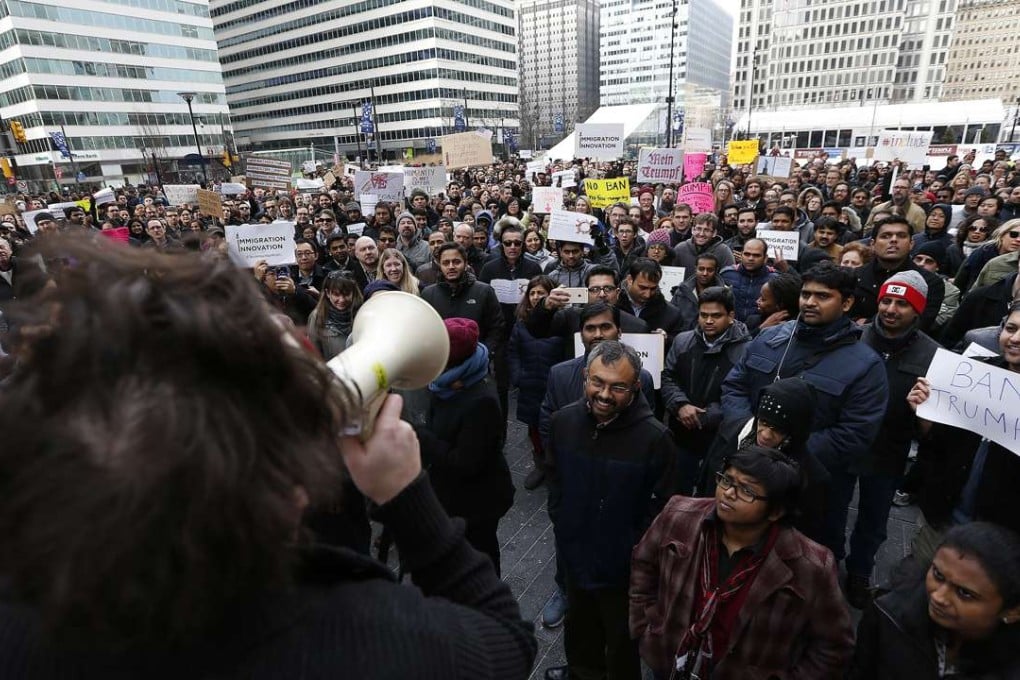If US travel ban crushes Silicon Valley, can China and Singapore pick up the pieces?
Shaken by scenes of detainees at US airports, skilled tech-industry workers around the world are shopping around for more foreign-friendly places to contribute

After studying chemical engineering in Canada for four years, Ali Nikdel was eager to start a new life in the United States. He was looking forward to joining the vibrant US engineering community and the 35-year-old already had a job offer lined up.
But just months before his graduation, Nikdel, an Iranian, abandoned his plan. Why? The executive order issued by President Donald Trump last week that banned citizens from seven Muslim-majority countries, Iran included, from entering the US for at least the next three months.
“I won’t consider it even after they lift the ban,” said Nikdel, a postgraduate candidate at the University of Waterloo, about relocating to the US. “I don’t feel secure [living] in a country [which] reminds me of populist policies I was suffering in Iran.”
Educational experts say that the ban on citizens from Iran, Iraq, Libya, Somalia, Sudan, Syria and Yemen could jeopardise America’s standing as the top destination for the world’s best students.
Like Nikdel, students and skilled workers who long considered America the place to be, are instead reconsidering their options. For many of these disillusioned souls, Asia offers an attractive alternative.

Those looking for tech-industry work could join an increasing crop of expatriates heading to Thailand, Vietnam and Indonesia, lured by affordable costs of living and fast-growing tech communities. Others may favour countries like China and Singapore, where governments are keen to attract foreign talent and build world-class tech hubs.